In The Gospels of the Weekday Lectionary, John Craghan offers readers both succinct exegetical insight and pertinent pastoral reflection. While this work is especially helpful for preachers who wish to offer a brief, yet substantial, word during the weekday homily, it also provides other listeners or readers of the weekday gospel texts with food for prayer and meditation. Craghans work calls all hearers of the Word to a sacramental vision of life that sees more deeply from a faith perspective.
James A. Wallace, CSsR
Professor of Homiletics
Washington Theological Union
Author of Preaching to the Hungers of the Heart (Liturgical Press)
Regular weekday Mass-goers relish thoughtful comments on the readings, especially the Gospel passages. Celebrants wish to oblige. John Craghan offers a practical and welcome service. His analysis of the text is enlightening, his reflections relevant and pithy. First class.
Wilfrid Harrington, OP
Professor of Scripture
Priory Institute, Dublin, Ireland
John Craghans expertise as a biblical scholar is evident on every page of this book. He not only captures the essence of the gospel message, but he also challenges us with its implications for our present-day lives. These insightful reflections will be warmly received by those who, in addition to other pressing ministerial responsibilities, are called on to preach on weekdays. They will also provide readers seeds that can grow into a rich biblical spirituality.
Dianne Bergant, CSA
Professor of Biblical Studies
Catholic Theological Union
John Craghan has provided a precious instrument for all who make the Gospels the core of their daily liturgical and prayer life. He not only states concisely and reliably what the ancient texts say but also helps people today to appreciate more fully the person of Jesus and to face up to the challenges he places before those who seek to follow him.
Reverend Daniel J. Harrington, SJ
Boston College School of Theology and Ministry
The Gospels of the
Weekday Lectionary Commentary and Reflections John F. Craghan

LITURGICAL PRESS Collegeville, Minnesota www.litpress.org
Cover design by David Manahan, OSB.
Some materials in this book first appeared in Scripture in Church, a quarterly published by Dominican Publications, Dublin, Ireland, www.dominicanpublications.com. The author and publishers acknowledge permission granted by Dominican Publications.
Daily Scripture excerpts in this work are from the Lectionary for Mass for Use in the Dioceses of the United States. Copyright 2001, 1998, 1997, 1992, 1986, and 1970, Confraternity of Christian Doctrine, Washington, D.C. Used with permission. All rights reserved. No portion of this text may be reproduced by any means and without permission in writing from the copyright owner.
Other Scripture texts in this work, unless otherwise noted, are taken from the New Revised Standard Version Bible 1989, Division of Christian Education of the National Council of the Churches of Christ in the United States of America. Used by permission. All rights reserved.
2010 by Order of Saint Benedict, Collegeville, Minnesota. All rights reserved. No part of this book may be reproduced in any form, by print, microfilm, microfiche, mechanical recording, photocopying, translation, or by any other means, known or yet unknown, for any purpose except brief quotations in reviews, without the previous written permission of Liturgical Press, Saint Johns Abbey, PO Box 7500, Collegeville, Minnesota 56321-7500. Printed in the United States of America.
1 2 3 4 5 6 7 8 9
Library of Congress Cataloging-in-Publication Data
Craghan, John F.
The gospels of the weekday lectionary: commentary and reflections / John F. Craghan.
p. cm.
Lectionary for Mass for Use in the Dioceses of the United States.
ISBN 978-0-8146-3338-0 ISBN 978-0-8146-3933-7 (e-book)
1. Church year meditations. 2. Bible. N.T. GospelsMeditations. 3. Catholic Church. Ordo lectionum Missae (2nd ed., 1998) I. Title.
BX2170.C55C73 2010
242. 3dc22
2010017076
For
Barbara Lynne
Ubi enim est thesaurus tuus, ibi est et cor tuum.
(Matt 6:21)


Why only the gospels of the weekday Lectionary and not the first readings? This is indeed a very legitimate question since these readings (mainly from the Old Testament) are also designed to nourish the faith of participants. The simple answer is volume or size. When one considers that there are separate weekday first readings for Year 1 and Year 2, commentary and reflection on them would obviously create an exceedingly bulky tome. Without disparaging the first readings, the gospels enjoy pride of place in the Liturgy of the Word. According to the instruction on the Lectionary, the gospels constitute the high point of the proclamation of the word (13, 36).
While many authors have written on the three-year Sunday cycle along with the appropriate solemnities and feasts, relatively few have devoted attention to the gospels of the weekday Lectionary. To a certain extent this is a lacuna that the present work seeks to address. This is in line with the instruction on the Lectionary that declares that the weekday readings complement the message of salvation presented in the three-year Sunday-Festal Lectionary (65). Thus weeks one through nine cover the Gospel of Mark, weeks ten through twenty-one the Gospel of Matthew, and weeks twenty-two through thirty-four the Gospel of Luke, while the Easter season focuses on the Gospel of John. As a result, the faithful have ample time to absorb the message of each evangelist.
In commenting and reflecting on the gospels of the weekday Lectionary, I have at least three groups in mind. First, I consider the busy parish priest who may wish to develop the message of the evangelists but may not have sufficient time to prepare. Second, I think of the leaders of the Liturgy of the Word with communion service who may wish to apply the gospel message to their congregations. Third, I envision those people, both religious and lay, who use the weekday gospels for their daily meditation. I hope that both the commentary and reflections will assist them, to some degree, in their prayer life.
Seize the text. It is absolutely imperative to begin with reading the actual biblical text in question. This is based on the conviction that there is no substitute for knowing what the text says. Commentary and reflections presuppose that one has devoted sufficient time to what the four evangelists have written.
A significant number of the commentaries and reflections in this work originally appeared in Scripture in Church, a quarterly put out by Dominican Publications of Dublin, Ireland. I am grateful to this publishing house and especially to Fr. Bernard Treacy, OP, the managing editor of Scripture in Church, for permission to use them in this work in a somewhat different format.
I dedicate this book to my wife, Barbara Lynne Wenzel Craghan, who gently but firmly challenges me each day to live the Good News. This work, therefore, is a small tribute to her indomitable spirit.
John F. Craghan
Darboy, Wisconsin

The First Week of Advent
Monday: Matthew 8:5-11 In this episode Jesus reaches out once again to an outsider (see the leper in the preceding pericope [8:1-4]). This time the outsider is a Gentile military officer who seeks a cure for his paralyzed servant from Jesus. Having learned proper military discipline in the Roman army, the officer does not require Jesus visit to the sick servantonly a word of command is necessary. It is hardly surprising, therefore, that Jesus is astonished at the centurions faith. It is a faith that Jesus has not found among his own people (the insiders).
Next page
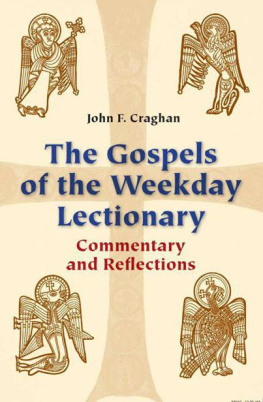

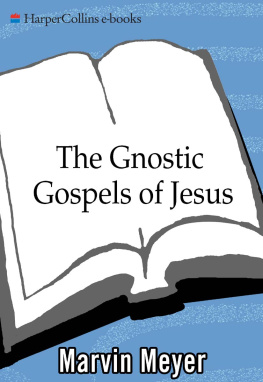
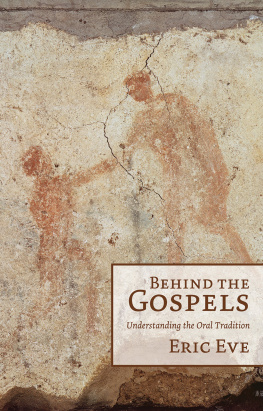
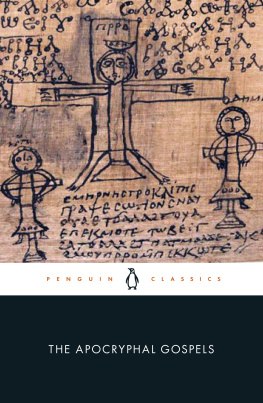
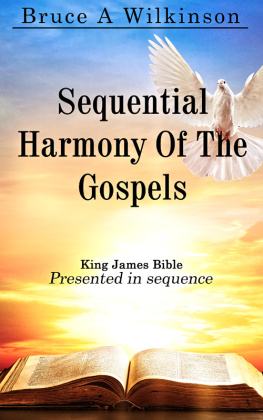
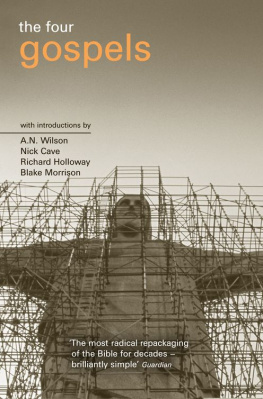
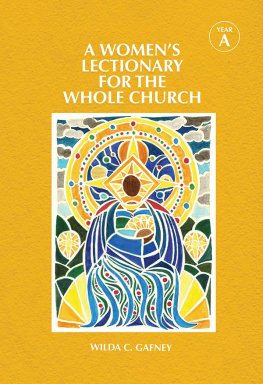
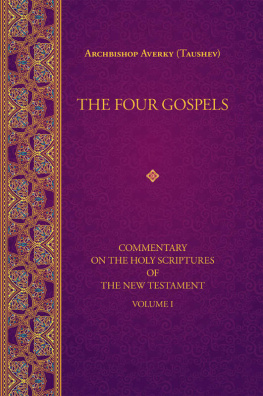
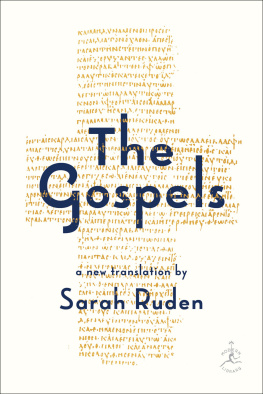
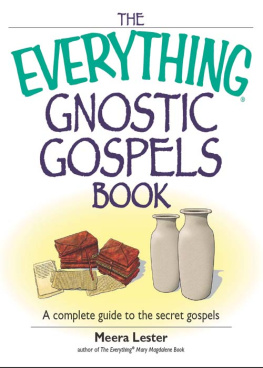
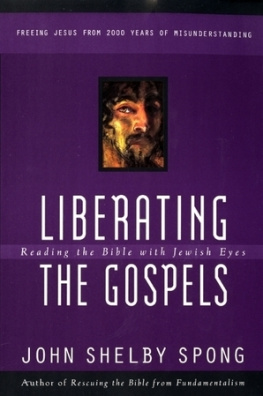
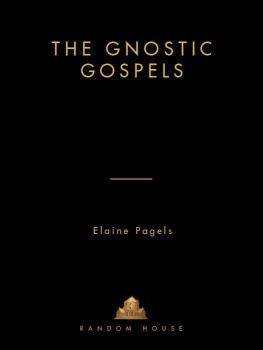
 LITURGICAL PRESS Collegeville, Minnesota www.litpress.org
LITURGICAL PRESS Collegeville, Minnesota www.litpress.org

